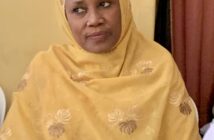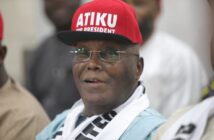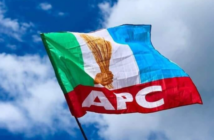A Presidential aspirant on the platform of the Peoples Redemption Party (PRP), Mrs Patience Key has vowed to achieve 50 per cent representation of women in politics if elected in the 2023 presidential election.
Key told the News Agency of Nigeria (NAN) in New York that Nigerian women deserved to be empowered to contribute meaningfully to the development of the country.
The aspirant said her administration would surpass the Beijing Declaration of 35 per cent and increase it to 50 per cent to give women equal opportunities to hold both elective and political positions.
The Beijing declaration of 35 per cent of women’s participation in politicssorry please leave this place now1995 requires governments, international organisations, and civil society groups to take a range of actions to enhance women’s political emancipation.
In Nigeria, the National Gender Policy (NGP) recommends 35 per cent affirmative action and seeks more inclusive representation of women in both elective political and appointive public service positions.
“We can have a 50/50 participation among genders in politics in Nigeria. We just have to wake up and take the bulls by the horn and stop waiting for handouts,’’ she said.
According to her, the Nigerian woman is “a symbol representing – courage, strength, resilience, hope, tenacity and transformational power.”
The aspirant, however, said the representation of women in politics and decision-making remained unacceptably low in Nigeria, with women currently constituting under five percent of elected political leaders.
“There are multiple factors that prevent women from running for political offices in Nigeria. The high cost of politics prevents women from standing for positions,’’ she said.
“Also, women don’t have enough money to pay for the mandatory expression of interest and nomination forms required by political parties to run for positions on their platforms.’’
Key, the immediate past Chairman of Nigerians in Diaspora Organisation (NIDO), Americas, USA said women make up 49.3 per cent of Nigeria’s population and that women suffer gender inequality in access to health services.
In addition, she emphasised that election campaign costs were exorbitant for women to afford, noting that there are also societal factors that impede women’s representation.
“They include cultural or religious norms surrounding marriage, indigeneship – a concept that recognises only ethnic groups native to a particular state – and the structures that portray women as subordinate to men.
“They encounter gender stereotypes that assign leadership to men, sexual assault, pay gaps and unpaid labour, including childcare and housework, placing them at a disadvantage.
Due to the population of women in Nigeria, their participation will create a balance of power between genders. This is an indicator of development in any society. But that is not the case for Nigerian women.
“The full and equitable participation of women in public life is essential and sustaining strong, vibrant democracies.
“When women are not participating in politics, it’s less likely that policies will benefit them. Women need to participate to bring attention to issues that uniquely affect them, and to change attitudes towards gender,’’ she said.
Key told NAN that what her administration would do differently would be to address some of the challenges and empower women to take their place in politics in the country.
She said women needed training in the fundamentals of politics. They need to understand grassroot politics and start from there. When people are unknown at the grassroots, they aren’t successful.
“Another way is networking and mentoring. Women also need to see that politics is not all dirty. They need to see governance as what affects every member of a society.
“Legislative changes are needed too and that is where affirmative action comes in. A quota system that reserves a fraction of electoral positions for women can be legislated.
“Financial support is crucial. Some women can’t afford to buy party forms. And when payment for forms is waived for women, they are often made to step down for the man who has paid.’’
Key urged women to be interested and be engaged in politics, noting that about half of the population of Nigerians are women and their participation will create a balance of power between genders and promote development in the country.
The presidential aspirant said Nigerian women needed to begin to participate in politics to create gender equality in the nation’s political space, adding that women’s full participation in politics is essential to building and sustaining strong, vibrant democracy.
“I will advise women to fully get involved in politics. It shapes our lives directly or indirectly and the full and equitable participation of women in politics ensures they benefit.
“Women’s participation in politics would bring attention to issues that uniquely affect them,’’ she said.
In addition, she urged the media to give visibility to covering women in politics, saying that the media must help educate people of the dangers of cultural norms and harmful gender stereotypes, and monitor fairness in elections.
“Advocating for affirmative action at the state and political party level is also important. Political parties have been known to tell a woman to step down from the electoral process. This must stop,’’ key added.




